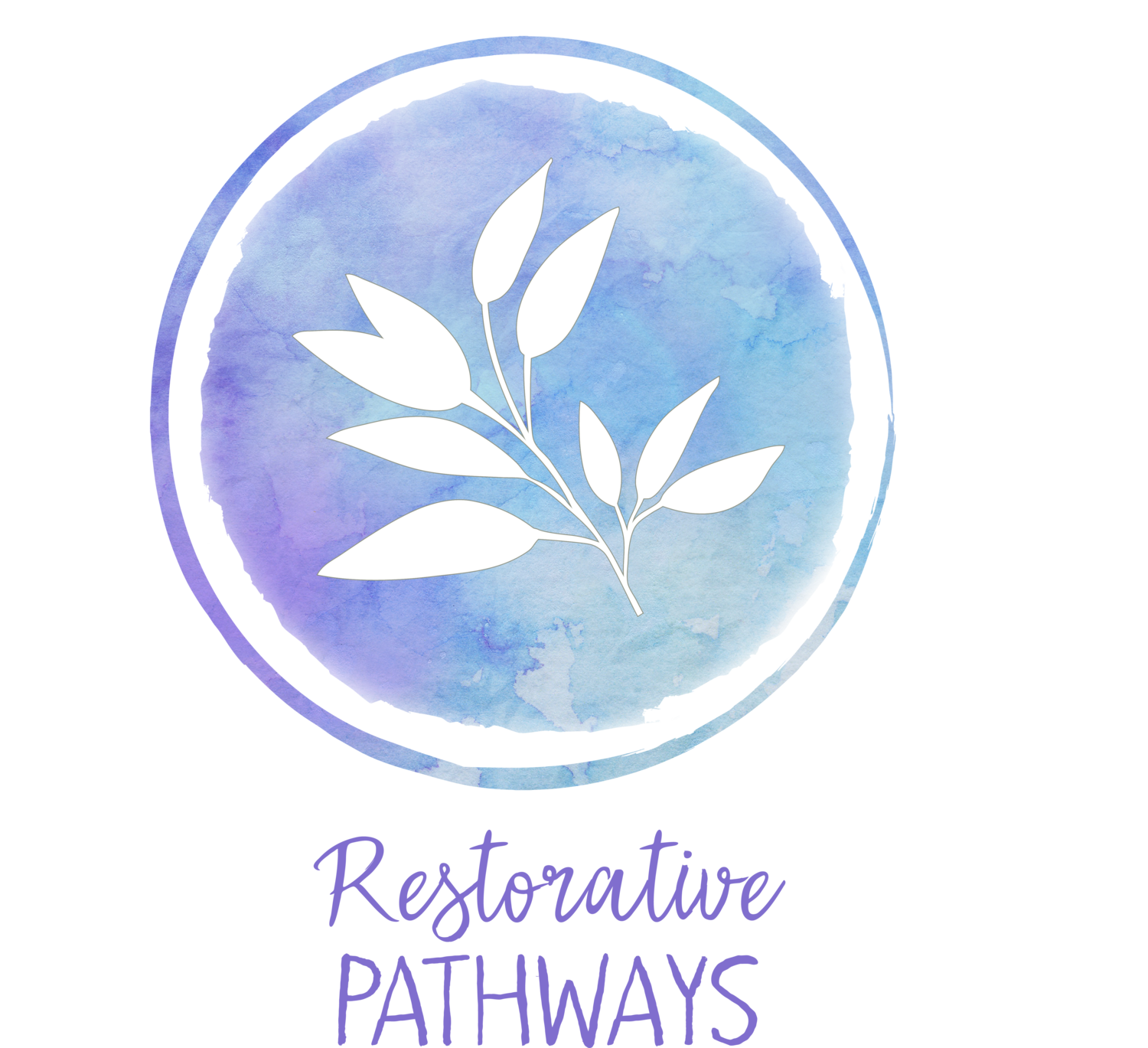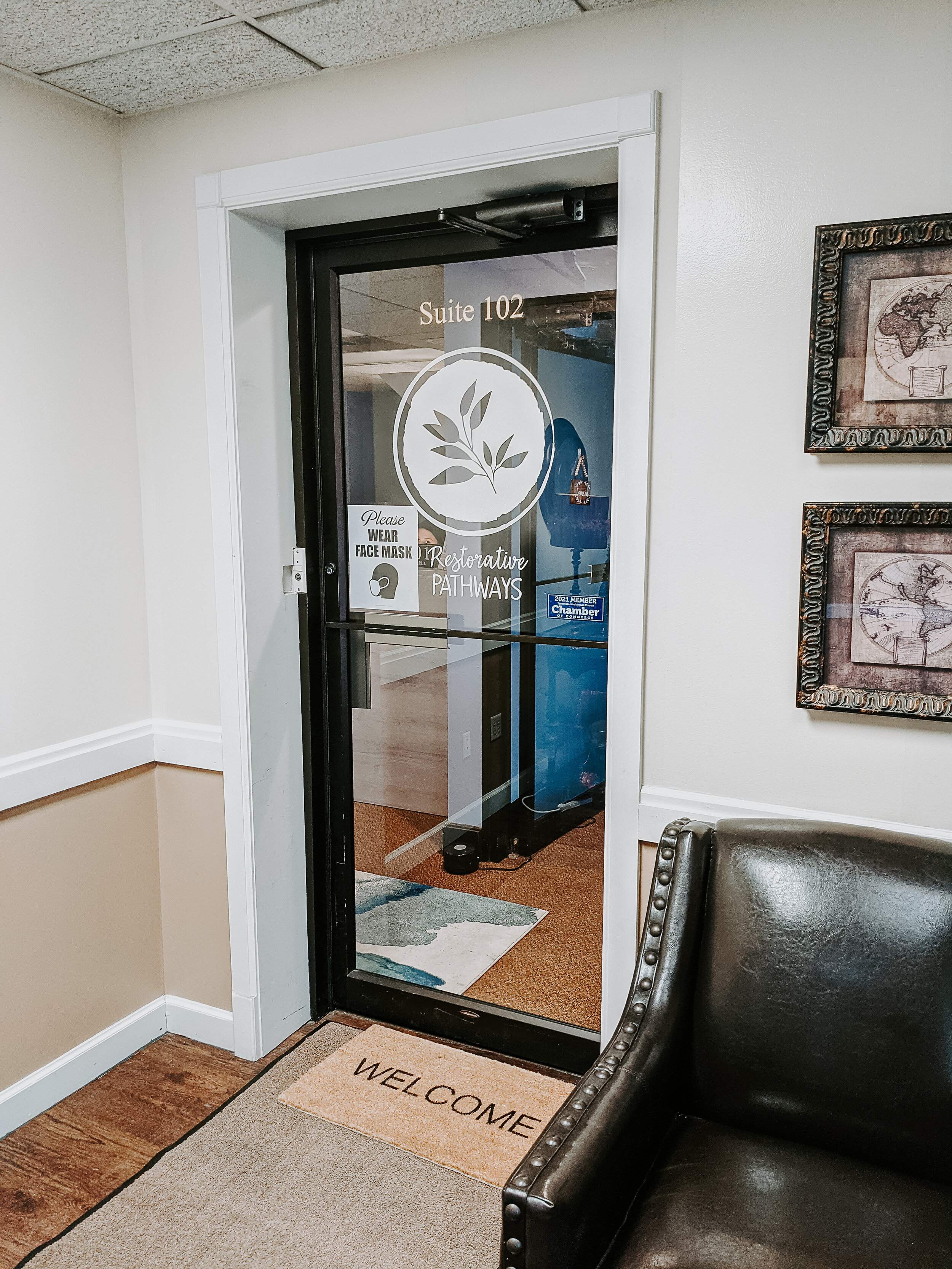Welcome!
Restorative Pathways Counseling, LLC is a faith-based private practice in Zanesville, OH. We are committed to providing competent counseling services in a healing, hope-filled environment to Zanesville and the surrounding areas. Feel free to look around to learn more about us and what we do. If you’re ready to make an appointment or you have some questions, contact us or schedule online.
Restorative Pathways Counseling, LLC
Thank you for considering Restorative Pathways Counseling, LLC. It takes a lot of courage to seek help and we fully understand there are many options for counseling in the surrounding area. We hope to be a part of your journey. We’re really glad you’re here.
How to set up a counseling appointment
Send us a message, call us at 740-214-6443, or schedule online.
We will confirm your appointment and send you your welcome email with links to your new client paperwork.
In your initial sessions we will discuss your history, story, and goals. (Your sessions will last about 55 minutes.)
From there, we will create a treatment plan (a map of where we’re headed).
Then we continue taking the next steps towards your goals until you reach them!
Frequently Asked Questions
What is counseling?
Therapy is an opportunity to discuss/talk about issues that are important to you, while having a trained, objective person (Therapist) help work through not only the current situation but in dealing with similar situations in the future. Therapy can be about one specific problem, or it can be about multiple. Something to mention, is that therapy is a collaborative event; it requires an active role from both the client and the therapist for change to occur.
Why is counseling beneficial?
People see a therapist for a wide range of reasons. Sometimes an event happens that causes someone to seek out help, and other times, people seek help to help them work through some issues they may have been struggling with for years. Counseling can be beneficial because a client may feel a sense of control in their life and have the tools to be able to make better decisions or changes in their life. Counselors can provide support, problem solving skills and coping strategies for a wide range of issues. Counselors, being objective, can provide a different or a fresh perspective on a problem that you have been struggling with. Some benefits can include boosting self-confidence or improving self-esteem, improving communication skills, learning/finding new coping skills, attaining a better understanding of yourself, changing old patterns and developing new ones, or managing your emotional feeling such as sadness, anger or other highly charged emotions you may be feeling.
What are the different types of counseling offered at your business?
Individual – Client has one on one sessions with their therapist to address any concerns and work through and seek positive alternatives.
Couples/Family – Helps reduce tension/conflict as well as improve communication skills with in the family unit. Most of our clinicians are trained in the Gottman Method for couples counseling as well as SYMBIS (Save Your Marriage Before it Starts) for premarital counseling.
All of our clinicians at Restorative Pathways Counseling are faith based clinicians – some have received formal training through seminary to fully address spiritual concerns and issues that you may be struggling with upon request.
What are the differences between seeing a counselor/therapist, psychologist and psychiatrist?
Counselors - Licensed Professional Counselors/Clinical Counselors (LPC/LPCC) in Ohio have earned their Masters degrees from accredited universities, passed licensing exams, and attend mandatory continuing education.
Social Workers - Licensed Social Workers (LSW/LISW) in Ohio have earned a minimum of a Bachelor’s degree from an accredited university, passed licensing exams, and attend mandatory continuing education.
Psychologists - Licensed Psychologists in Ohio have earned their Doctorate degrees from accredited universities, passed licensing exams, and attend mandatory continuing education. As well as talk therapy, they may also provide psychological testing for schools, courts and other entities.
Psychiatrists - Psychiatrists tend to limit their talk therapy/counseling services and are typically available for medication management. Psychiatrists are physicians that have completed medical school and have completed their residency with a psychiatric specialty.
**If your therapist feels that you may need medication, they may provide you with a referral to doctors that they recommend. If medication is necessary, typically in these clients, medication and talk therapy are used together. Medication therapy is not a replacement for talk therapy.
Do you take insurance?
We do accept some insurance. In order to see if we accept your particular insurance, ask your therapist or our office assistant when scheduling your initial appointment. See our document named “Questions to Ask Your Insurance” to find a list of questions to ensure coverage.
Can I bring someone with me?
Yes! Relationships are among the most common issues to be discussed in therapy, so it often makes sense to invite significant people in your life to participate in one or more of your sessions. You might find that you would like to bring a friend, family member(s), and/or intimate partner to a session or series of sessions.
How long does treatment last?
The average number of sessions is somewhere around 12. Some issues can be resolved in one session; some require meetings over a longer term.
questions that counselors typically ask at your first session:
What brings you here?
Have you seen a counselor before?
Are you on any medications?
What makes the problem better?
What would it look like for this problem to get better?
What do you expect from me and the counseling process?
How are your relationships with your family and friends?
**If you are currently taking medications for mental or physical health, or if you have recently stopped a medication, you will want to come prepared with the following information: name of the drug(s), your dosage, side-effects you are experiencing, and contact information of the providing doctor(s). Write reminder notes. When meeting for the first time, you may have lots of different questions and concerns. Bringing these to your first session will help you feel less confused and more at ease.











